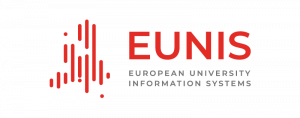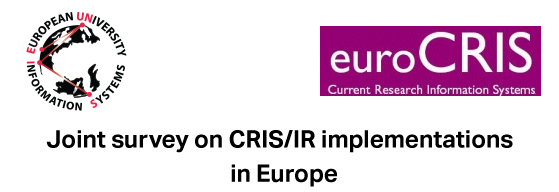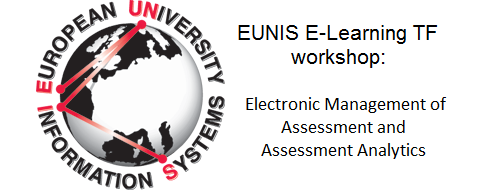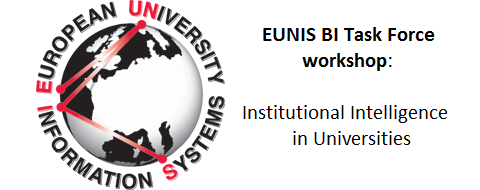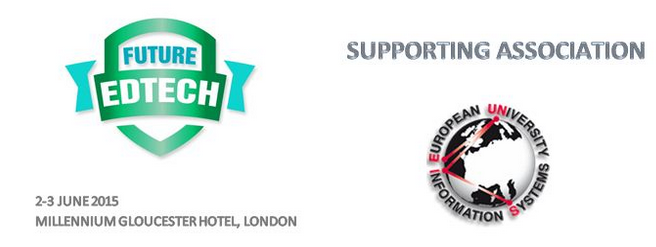A new webinar “A journey through the assessment and feedback landscape: from principles to effective practice” is due on 20 May, 2015 at 11.00 CEST, as part of the TALOE […]
Author: Anna Pacholak
CRIS/IR survey in Europe and the Membership Meeting, Paris 11-12 May, 2015 at AMUE
Dear colleagues, Following the Partnership Agreement signed in 2014 with euroCRIS, the European Organisation for Research Information, we are pleased to announce the launch of the first joint initiative: a […]
EUNIS pre-Congress E-Learning TF Workshop: 9th June 2015, Abertay University
Electronic Management of Assessment and Assessment Analytics EUNIS E-Learning Task Force Workshop will be held at the Abertay University, Dundee (Scotland) on 9th of June 2015, 10.00-16.00. The workshop will […]
EUNIS BI Task Force: May 20, Madrid
Institutional Intelligence in Universities The EUNIS BI Task Force will participate in an event in Spain dedicated to Institutional Intelligence in Universities, organized by CRUE-TIC. The event will take place […]
EUNIS in partnership with the Future EdTech Conference: 2nd-3rd of June, London
EUNIS in partnership with the Future EdTech Conference The Future EdTech Conference: Enabling Transformational Change and Innovation in Higher Education via Technology will be held on 2nd-3rd June in London. At […]
